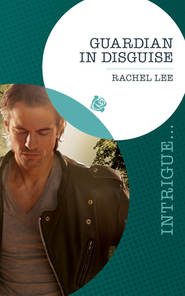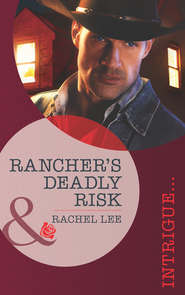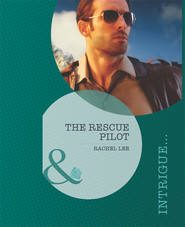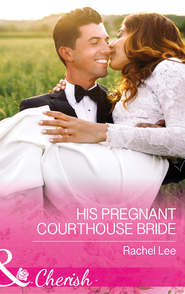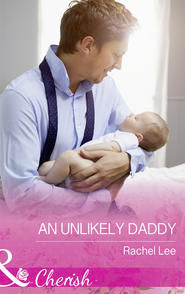По всем вопросам обращайтесь на: info@litportal.ru
(©) 2003-2025.
✖
Something Deadly
Автор
Год написания книги
2018
Настройки чтения
Размер шрифта
Высота строк
Поля
“Exactly.” Dec glanced at the clock on the wall. “Seven hours. I suggest you shut down the airport first. If you don’t call the Coast Guard, I will.”
“If this isn’t contagious…”
“Then you can have my head on a platter. Stan…” Declan hesitated. Finally he said, “I’m scared, too. But we have to do the responsible thing.”
When he hung up, assured that Stan would do what was necessary, Declan continued to stare into the autopsy theater. Because he had already had two unprotected exposures to Shippey’s body, he had canceled all his appointments for the day, not wanting to risk infecting a patient.
It was sort of like sitting on death row, he thought sourly. Trapped here with that body, basically. He’d already sent Hal home, with strict orders to stay there. At least Hal didn’t have a family.
But there were others who’d already been exposed: Carter Shippey’s wife, certainly. The cops, the crime scene team and all of Carter’s friends and family.
He could, he supposed, judge himself to be no more contagious than anyone else. But he was. Decon suit notwithstanding, from the instant he had cut into the body, this entire morgue had become a death zone. An airborne virus couldn’t be contained by a mere door.
The morgue had its own air circulation system because of the highly contagious diseases that were sometimes autopsied here, so whatever it was shouldn’t spread beyond the morgue very fast, especially since a slightly lower atmospheric pressure was maintained in here. Nothing was too good or too expensive for the wealthy.
But this wasn’t a maximum security biocontainment facility. It was state of the art for the routine types of contagion that were expected, but it was not proof against the worst that Mother Nature could offer.
Declan had never had any desire to be on the cutting edge of research. Doctoring people had been his highest ambition. It gave him no pleasure at all to consider that he might have discovered a brand-new disease.
Happiness filled Kato when the day was over and he and Markie began their evening walk home. It wasn’t that he didn’t enjoy being at the clinic. Being so near to other animals, especially dogs, filled him with joy, even when they hurt and needed his attention. But today there had been too many cats.
He’d learned from Markie at a very early age that cats were off-limits. He couldn’t begin to understand why—they clearly smelled like prey—but it seemed that many humans actually liked the creatures. So, to please Markie, he simply departed the vicinity of any feline.
Which was not to say he didn’t occasionally pretend that his tug toy was a cat. But dreams were only dreams.
Traveling down the sidewalk at a brisk pace, he noted that some human had recently passed, leaving a trail of illness in the air. He tested it, drawing quick bursts of air into his nose and expelling them through his mouth. No, it was not the smell of last night.
As they passed one house, a small dark dog yapped annoyingly from behind a window. Oh-look-oh-look-another-dog-another-dog-oh-look-oh-look! Kato gave the dog a dismissive turn of the head. Such a waste of energy. He preferred to remain silent and watchful. One’s voice was meant to sing, and singing was reserved for special occasions: play or need or union. Otherwise, silence aided the senses in being watchful.
The world was a plethora of smells: flowers, grass, trees, people, animals, insects…oh, the joy of filling his nostrils with the teeming life of the world.
But then the pungent scent of fear wafted to him. Faint, it seemed to come from elsewhere. He sucked it in, concentrating on it, following it along the sidewalk as best he could at the end of a leash. Markie was not cooperating. But then, he’d long since realized that Markie didn’t have a real nose. He sometimes pitied that little thing on her face, so useless. On the other hand, he could taste the wind for her. And her eyes and hands were far more adept than his. They worked well together.
The fear-smell went away, then returned as they rounded a corner onto his own street. He lifted his head, sucking it in, and felt his hackles stir.
Last night…last night he wasn’t sure what he had smelled. He had merely felt compelled to follow it, despite Markie’s objections. Sometimes she just didn’t know what was truly important.
But Kato found himself remembering last night, the smell he had followed, the way all the dogs around had grown frenzied, some with anger, some with fear. Not all barks were the same, though most had been protective.
Then there had been the scent. A different scent. One he had never before known. And it had led directly to death. Terror and death, two very powerful smells.
He would have left, but somehow it had seemed important to remain, to make sure his mistress knew there was danger. He hoped she had understood.
Now the lingering scent of fear led him to a palm trunk. He sniffed around it, getting glimmers of how local dogs had been doing lately. Most were happy and healthy. One or two were angry. A female was beginning to enter heat. And one… Kato sniffed the sad scent and made a whimper of sympathy.
“Kato?”
He ignored her. Moving upward, he finally zeroed in on the aroma that had called to him from so far away. Fear. Terror. Bad thing. Fresh. Recent. Large dog, healthy, but terrified.
The hair on Kato’s neck rose, and he backed away from the tree. Something was very wrong in his world. He would need Markie. And she would need him.
Declan watched the two CDC team members, fully suited, working on Carter Shippey’s remains. Remains seemed the only word for that travesty of a body on the table. But as far as Declan could see, there had been no further deterioration since this morning.
Behind him, another suited member of the team spoke. “The physical deterioration occurred overnight?”
Declan turned to face Marshall Wilcox, the team leader. “Most of it, yes. At least the part that was visible.”
“So let me see if I have this right. Last night you were called to a sudden death of a sixty-three-year-old male, retired fisherman.”
“That’s correct.”
“And you’d given him a physical only a month ago and found him to be fit?”
“As fit as a much younger man, yes.” It was unnerving talking to someone who was hiding behind a decon suit and hood, breathing his own air, a man whose voice was coming through a speaker.
“And upon examination of the body, the only unusual thing you noticed was a sponginess.”
“That’s correct. He felt doughy. But he wasn’t swollen as far as I could see. At that time his face appeared locked in a rictus of terror.”
“Not unusual with heart attack deaths.”
“No, I’ve seen it before.”
“Okay.” Wilcox came over to stand beside him. “And the way he looked when we got here was the same way he looked this morning when you pulled him for autopsy.”
“That’s correct.”
“And nobody else is sick?”
“Not yet. Not that I know of.”
“Not even his wife.”
Declan shook his head. “She called me a couple of hours ago, wanting my autopsy results.”
“And you told her?”
“That I needed to run some extensive blood work and tissue tests before I could say anything. That it might be a while before we pinpointed the exact cause of death.”
A slight movement of Wilcox’s hood seemed to indicate a nod. “Good. Well, from what I’ve seen so far, I’m going to support your quarantine of the island. In the meantime, I don’t see any need for you to hang around here.”
It was a clear dismissal. Declan felt pinpricks of anger in his face. “He’s my patient.”
“He’s our patient now,” Wilcox said flatly. “You don’t have the facilities or knowledge to handle this.”
Declan turned to face him, forcing Wilcox to do the same. “Just what is ‘this’?”
Wilcox hesitated. “I don’t know. We’ve never seen anything like it.”






